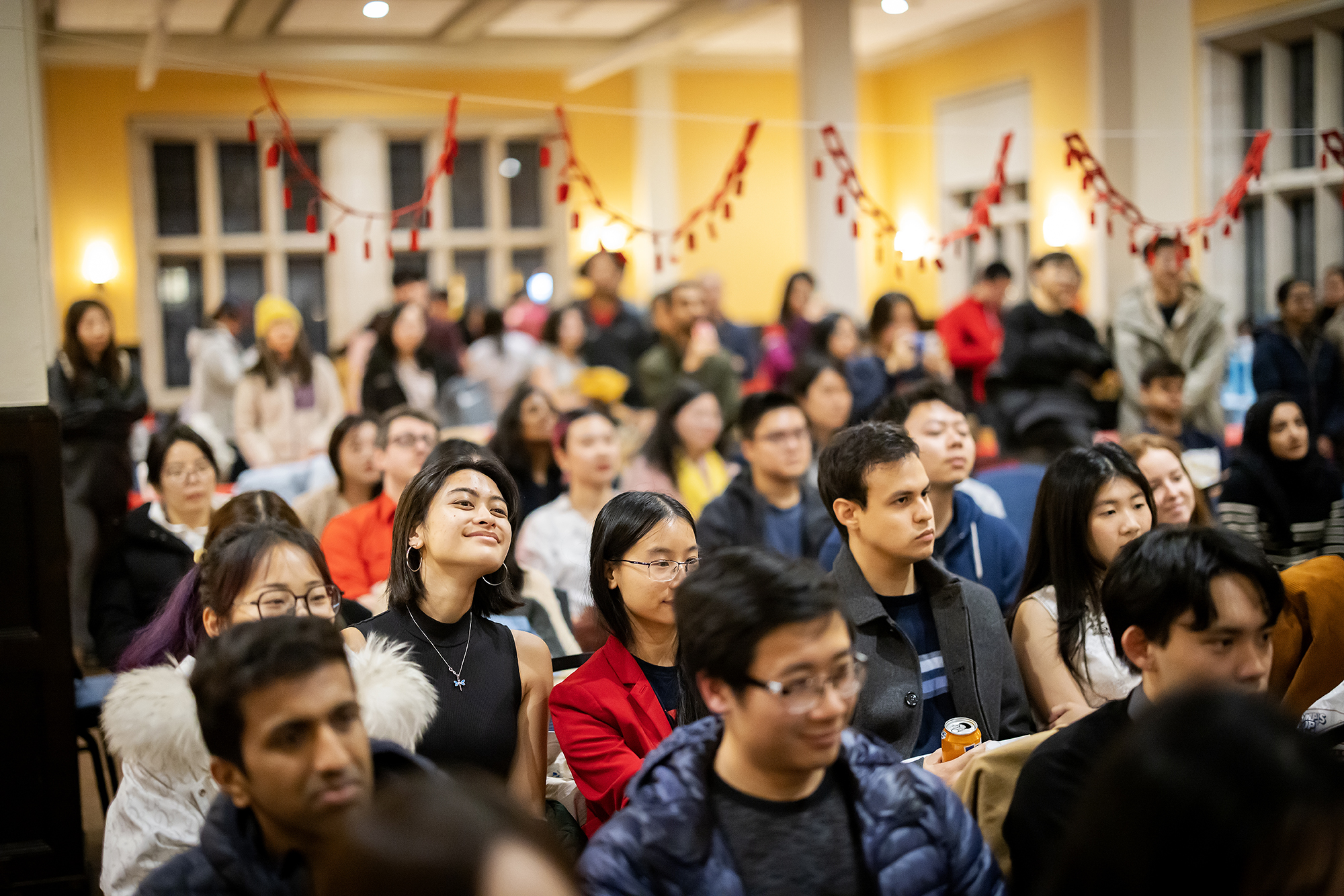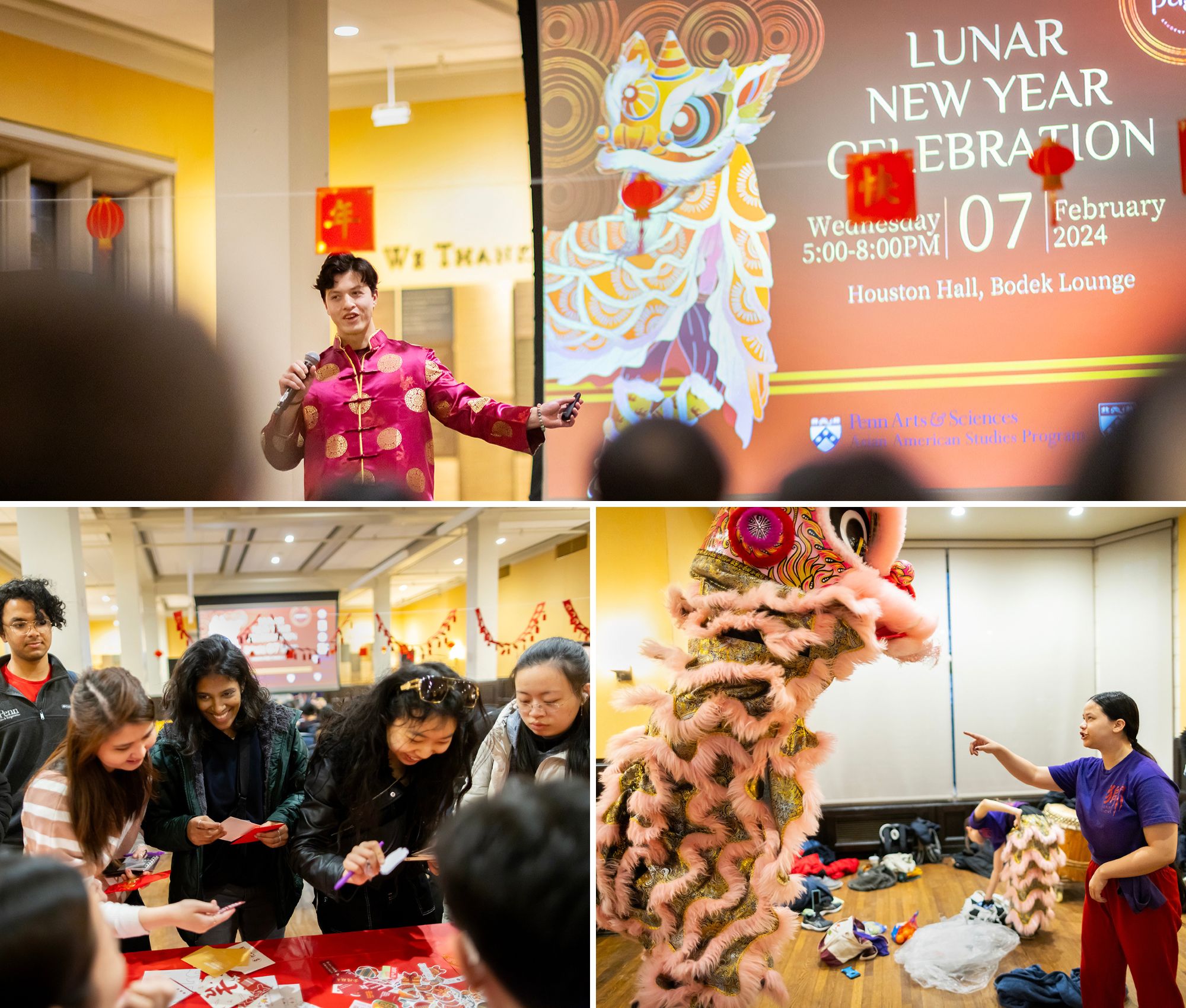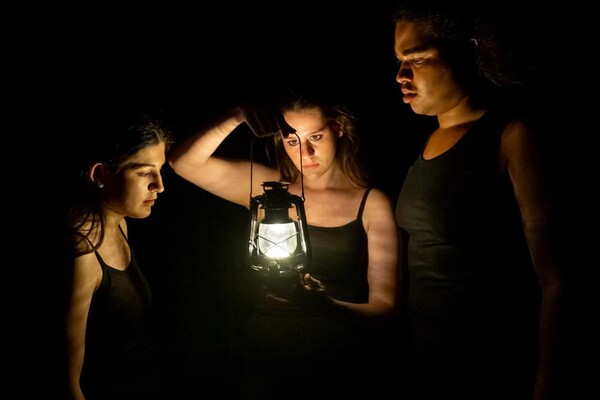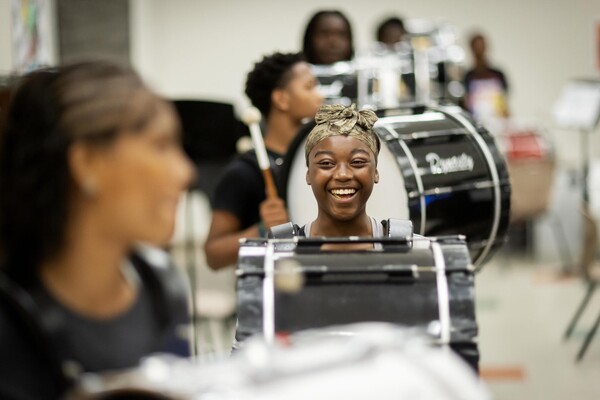
Image: Aditya Irawan/NurPhoto via AP Images

With red envelopes, lion dances, and student performances, the Pan Asian Graduate Student Association (PAGSA) rang in the Year of the Wood Dragon on Feb. 7 in Houston Hall’s Bodek Lounge. Founded in 2008, PAGSA provides a home away from home and advocates for its constituents, say Will Chan, president and Sharina Woo, executive vice president.
“When I came to Penn, as an international student not knowing anyone, it was very important to me to find community for myself, but also to help others find community and make sure it was accessible and inclusive,” says Chan, a second-year doctoral candidate in physics who was born in Hong Kong and raised in the U.K.
“It is building a sense of belonging and embracing the diversity across the Asian community that drives me,” says Woo, a second-year Wharton MBA student from Canada, born to parents from Hong Kong and Malaysia. It’s also educational for those who aren’t familiar with Asian traditions, she says.
Lunar New Year, celebrated across the Asian diaspora, marks the beginning of a new year in the lunar calendar. Families gather to bid farewell to the old year through cleaning their homes and bring forth luck and prosperity by wearing red, attending performances, feasting together with elders, and giving their descendants money in red envelopes.

To mirror these traditions, PAGSA presented students with red envelopes containing chocolate “coins” and a program of the event. The program featured contemporary and traditional dances, a traditional lion dance by Penn Lions, acapella K-Pop from PennSori, and presentations from the Chinese Students and Scholars Association at Penn (CSSAP) and the Vietnamese Students’ Association (VSA). The performances were designed to build awareness of the similarities and differences in the cultural celebrations of the Lunar New Year. The evening was capped off with crafts led by Penn Art & Wellness, calligraphy by Penn Chinese Calligraphy, and food.
The best part is after the events wind down, Chan says. “You see all of the different clusters of students that are just connected and having a good time. All the food is done—so you know they’re not staying for that—but they’re genuinely making some connections and finding new people to bond with,” says Chan.
Kristina García

Image: Aditya Irawan/NurPhoto via AP Images

nocred

Image: Michael Levine

A West Philadelphia High School student practices the drum as part of a July summer program in partnership with the Netter Center for Community Partnerships and nonprofit Musicopia.
nocred